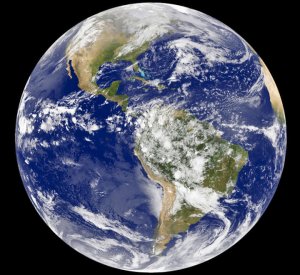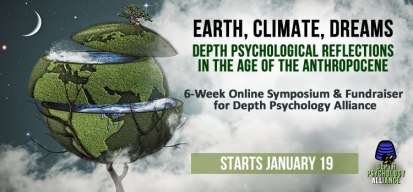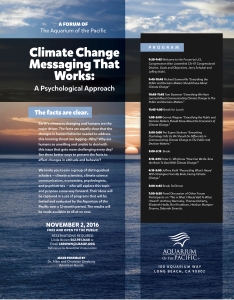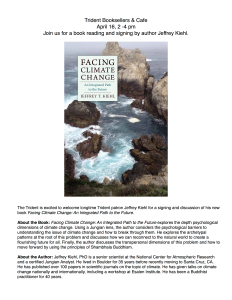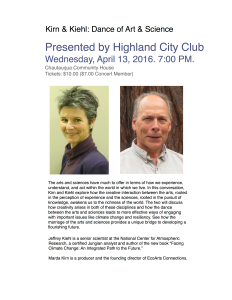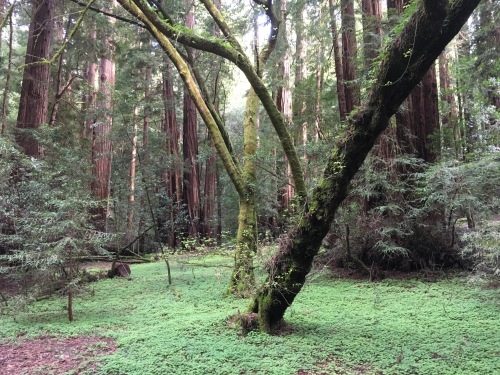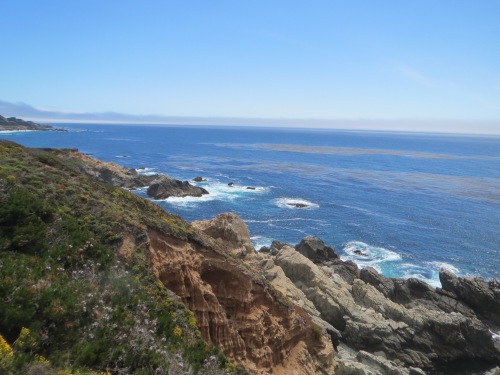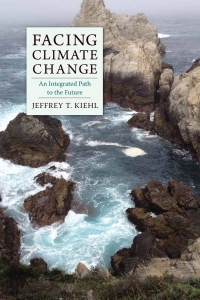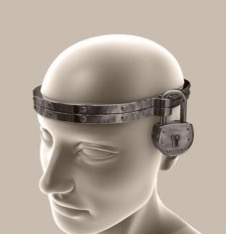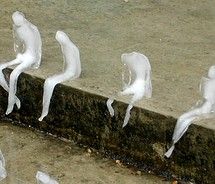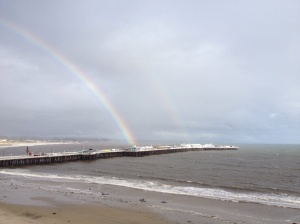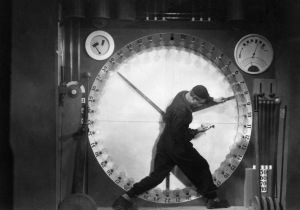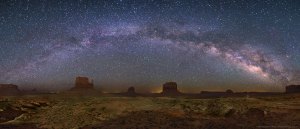
“If we are stumbling into an era of dictators, Caesars, and incarnated States, we have accomplished a cycle of two thousand years and the serpent has again met with its own tail. Then our era will be a near replica of the first centuries A.D., when Caesar was the State and a god, and divine sacrifices were made to Caesar while the temples of the gods crumbled away. You know that thousands in those days turned their eyes away from this visible world, filled with horror and disgust, and adopted a philosophy which healed their souls.”
C.G. Jung CW (18, par. 1342)
The recent outcome of the US presidential election has resulted in a mood of tremendous worldwide anxiety. Many wonder how we got to this point in history. Many question how we will survive the coming days of political, social and environmental upheaval.
Jung wrote the above quoted words in 1936, a time when many Caesars were appearing in the world, a time when nationalism was on the rise in Germany, Russia, and Italy. Here he observes that the appearance of dictators occurred in the past and a common response for some in such times was a turning away to find a way to heal the soul. Such soul-based philosophy requires a turning within in order to transcend the materialistic poverty of the outer world. In reaction to the outcome of the US election there is a call for immediate action. I do not deny action is essential, but of equal importance is taking the time to look quietly within, which opens us to healing our wounded souls. At such pivotal points we need to balance ‘doing’ with ‘being’ so that our actions come from a deeper place within us, a place rooted in consciousness, connectedness and caring. At this pivotal point in our history we are in need of soulful approaches for working with our highly fragmented world. Depth psychology roots us in the varied dimensions of psyche and provides us with skillful means for exploring shadow and light in imaginative ways.
How did we get here? Earlier in his 1936 essay Jung (CW 18, par. 1330) says that,
“Nations in a condition of collective misery behave like neurotic or even psychotic individuals. First they get dissociated or disintegrated, then they pass into a state of confusion and disorientation.”
Here in the US we have felt this state of confusion and disorientation for a while. There is dis-ease in financial markets, growing inequity in monetary wealth, rising housing costs, lack of proper health care, and dislocation from place. Post election analysts describe a yearning among many Americans for radical change. Consciously and unconsciously there is a recognition that the old paradigm does not work anymore. There is a desire for a new way, even if we do not know what that way is resulting in a state of confusion.
Jung goes on to say that at first,
“… the confusion affects mainly the conscious and subconscious layers but does not touch the fundamental instinctual structure of the mind, the collective unconscious. On the contrary, the confusion in the top layers produces a compensatory reaction in the collective unconscious, consisting of a peculiar personality surrogate, an archaic personality equipped with superior instinctive forces. This new constellation is at first completely unconscious, but as it is activated it becomes perceptible in the form of a projection.”
The collective psychological sense of confusion and loss touches the part of psyche most associated with personal and social complexes. We can recognize the complex-ed state of the collective psyche through the highly emotional outbursts plaguing the nation during the election process. The unconscious reaction to the outer sense of confusion with its associated emotional outbursts creates an ‘archaic personality’ possessing tremendous power. Since this personality is unconscious it is projected on to some outer form.
In terms of the individual and even the collective, Jung explains that
“It is usually the doctor treating a patient who unwittingly assumes the role of the projected figure. The mechanism of this projection is the transference. By transference the doctor appears in the guise of the father, for instance, as that personality who symbolizes superior power and intelligence, a guarantee of security and a protection against overwhelming dangers.”
Perhaps here is the key to what has happened in the recent election for in a state of mass confusion many search for an individual who presents as powerful, who offers ‘a guarantee of security and a protection against overwhelming dangers.’ Donald Trump has promised to make “America great again” and to protect us from varied threats real and imagined. Out of a sense of insecurity people look for the protector and they believe they have found their protector.
Is this where the process of projection ends? Jung proceeds by saying,
“So long as the disintegration has not reached the deeper layers, the transference will not produce more than the projection of the father-image. But once the confusion has stirred up these unknown depths, the projection becomes more collective and takes on mythological forms. In this case the doctor appears as a sort of sorcerer or saviour.”
The collective emotional intensity during the US election indicates that we dropped down into the deeper archetypal layers of psyche and excited more than just a need for a paternal protector. A father figure was no longer sufficient to allay the fear in people. The current rise in nationalism indicates that people yearn more for a ‘sorcerer or savior.’ Of course the sorcerer often appears in his darkest of forms and we find ourselves now facing a great illusionist, rather than a savior.
What to do? Have we returned to a time when many will turn their “eyes away from the visible world” and search for a philosophy to heal the soul? I would argue that this is exactly what is needed. Before we act, we need to do some soul healing. We need to look within our hearts and, in stillness, discover the darkness within ourselves that has created this world of confusion.
Jung (CW 9ii, par. 255) writes that,
“Only ruthless self-knowledge on the widest scale, which sees good and evil in correct perspective and can weigh up the motives of human action, offers some guarantee that the end-result will not turn out too badly.”
Self-knowledge comes from looking inward, but this does not mean we flee from the outer world. Essentially we need both inner reflection and engagement with the world to bring about healing. Jung felt very strongly that the healing process was not one of retreating from the world, he says (Visions Seminar, p. 1367) that,
“… we are only complete in a community or in a relationship. There is no possibility of individuation on the top of Mount Everest where you are sure that nobody will ever bother you. Individuation always means relationship.”
Depth psychology tells us that we need to balance our search for self-knowledge with worldly engagement. The result of such a balanced approach is to discover an inner sorcerer that provides the wisdom and compassion required for creating a fear-less world. Through such a process we need look no further for a Caesar…
